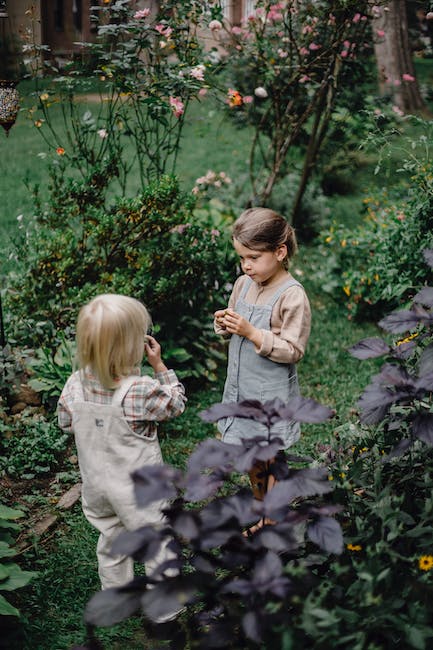Community gardens serve as vibrant hubs of activity, bringing together individuals from diverse backgrounds to cultivate not only plants but also relationships. As you step into this shared space, it’s essential to understand the rules that govern it. These guidelines are designed to ensure that everyone can enjoy the benefits of gardening while respecting the contributions and efforts of fellow gardeners.
By adhering to these rules, you help create an environment that fosters cooperation, creativity, and a sense of belonging. The establishment of community garden rules is not merely a bureaucratic necessity; it reflects the collective values and aspirations of the community. These regulations are crafted to promote sustainability, encourage responsible gardening practices, and maintain harmony among users.
As you engage with your fellow gardeners, you will find that these rules serve as a framework for collaboration, ensuring that everyone has a fair opportunity to participate and thrive in this green oasis.
Key Takeaways
- Community garden rules are essential for maintaining a harmonious and productive space for all users.
- Maintaining a beautiful green space in the community garden is important for creating a welcoming and enjoyable environment for everyone.
- Guidelines for planting and maintaining garden beds help ensure that the garden remains organized and well-cared for.
- Rules for composting and waste disposal are crucial for promoting sustainability and cleanliness in the community garden.
- Regulations for watering and irrigation help conserve water and ensure that all plants receive the necessary hydration.
Importance of Maintaining a Beautiful Green Space
A well-maintained community garden is more than just a collection of plants; it is a sanctuary for both nature and the community. When you take the time to care for your garden, you contribute to a beautiful environment that enhances the quality of life for everyone involved. Aesthetically pleasing spaces invite people to gather, fostering social interactions and creating a sense of community pride.
The vibrant colors and fragrant blooms can uplift spirits and provide a peaceful retreat from the hustle and bustle of daily life. Moreover, maintaining a beautiful green space has ecological benefits that extend beyond the garden’s borders. Healthy gardens support local biodiversity by providing habitats for various species, including pollinators like bees and butterflies.
As you nurture your plants, you also play a role in promoting environmental sustainability. By practicing responsible gardening techniques, such as using organic methods and conserving water, you contribute to the overall health of the ecosystem. This interconnectedness highlights the importance of your efforts in maintaining not just your plot but the entire garden.
Guidelines for Planting and Maintaining Garden Beds
When it comes to planting and maintaining your garden bed, following specific guidelines can make all the difference in achieving a thriving plot. First and foremost, it’s crucial to select plants that are well-suited to your local climate and soil conditions. As you choose your seeds or seedlings, consider factors such as sunlight requirements, growth habits, and compatibility with neighboring plants.
This thoughtful selection process will set the stage for a flourishing garden that benefits both you and your fellow gardeners. Once your plants are in the ground, regular maintenance becomes essential. This includes watering, weeding, and monitoring for pests or diseases.
Establishing a consistent watering schedule will help ensure that your plants receive adequate moisture without becoming waterlogged. Additionally, staying vigilant about weeds will prevent them from competing with your plants for nutrients and space. By dedicating time to these tasks, you not only enhance the health of your garden but also demonstrate respect for the shared space and the efforts of others.
For more information on selecting the right plants for your garden, you can visit the Royal Horticultural Society website.
Rules for Composting and Waste Disposal
Composting is an integral part of sustainable gardening practices, allowing you to recycle organic waste while enriching the soil. However, it’s important to follow specific rules when composting in a community garden setting. You should familiarize yourself with what materials are acceptable for composting—typically kitchen scraps like fruit and vegetable peels, coffee grounds, and yard waste such as leaves and grass clippings.
Avoid adding meat, dairy products, or oily foods, as these can attract pests and create unpleasant odors. Proper waste disposal is equally important in maintaining a clean and healthy garden environment. You should always dispose of non-compostable materials in designated trash bins rather than leaving them in the garden or tossing them on the ground.
This practice not only keeps the space tidy but also prevents potential health hazards associated with decomposing waste. By adhering to these composting and waste disposal rules, you contribute to a sustainable cycle that benefits both your garden and the broader community.
Regulations for Watering and Irrigation
Water is a precious resource, especially in community gardens where multiple users rely on it for their plants’ survival. To ensure equitable access to water, it’s essential to follow established regulations regarding watering and irrigation practices. You should be mindful of local watering schedules or restrictions that may be in place due to seasonal changes or drought conditions.
By adhering to these guidelines, you help conserve water while ensuring that all gardeners have access to this vital resource. In addition to following watering schedules, consider implementing efficient irrigation methods such as drip systems or soaker hoses. These techniques deliver water directly to the plant roots while minimizing evaporation and runoff.
As you water your garden, be conscious of how much moisture your plants require; overwatering can lead to root rot and other issues. By practicing responsible watering habits, you not only support your own garden’s health but also contribute to the sustainability of the entire community garden.
Policies for Pest and Weed Control
Understanding Community Garden Policies
Community gardens often have guidelines in place for pest control methods to ensure that all gardeners can grow their plants without harmful chemicals affecting neighboring plots. It’s essential to familiarize yourself with these policies and opt for organic or natural pest control solutions whenever possible.
Effective Weed Management
Regularly inspecting your plot for invasive species will help prevent them from spreading to neighboring beds. Hand-pulling weeds is often the most effective method in small gardens, as it minimizes soil disturbance and reduces the risk of introducing new weed seeds into the area.
Creating a Healthier Ecosystem
By being proactive about pest and weed management, you contribute to a healthier ecosystem within the community garden.
Code of Conduct for Community Garden Users
A code of conduct serves as a guiding principle for all community garden users, promoting respect, cooperation, and inclusivity among participants. As you engage with fellow gardeners, it’s essential to communicate openly and respectfully. This includes being considerate of others’ space and time—avoid encroaching on someone else’s plot or using tools without permission.
By fostering a spirit of collaboration, you help create an inviting atmosphere where everyone feels valued. Additionally, participating in community events or meetings can strengthen relationships among gardeners. These gatherings provide opportunities for sharing knowledge, exchanging tips, or simply enjoying each other’s company while working in the garden.
By actively engaging with your fellow gardeners and adhering to the code of conduct, you contribute to a positive community spirit that enhances everyone’s experience in the garden.
Enforcement and Consequences for Violating Garden Rules
While community gardens thrive on cooperation and goodwill, there may be instances where rules are violated. It’s important to understand that enforcement mechanisms are in place to address such situations fairly and consistently. Typically, community gardens have designated coordinators or committees responsible for monitoring compliance with rules and addressing any concerns that arise.
If you notice someone violating a rule, it’s best to approach them respectfully or report the issue to a coordinator rather than confronting them directly. Consequences for violating garden rules can vary depending on the severity of the infraction. Minor violations may result in a warning or reminder about specific guidelines, while more serious breaches could lead to temporary suspension from using the garden or even permanent removal from the community if necessary.
These measures are not intended to punish but rather to maintain a harmonious environment where all users can enjoy their gardening experience without conflict. By understanding these enforcement policies, you can help uphold the integrity of the community garden while ensuring that it remains a welcoming space for everyone involved.
If you’re interested in learning more about organic gardening tips for a successful community garden, check out this article on Green Thumbs Up: Organic Garden Tips for Blooming Success. This article provides valuable insights on how to cultivate a thriving garden using organic methods. It complements the importance of following community garden rules to ensure a harmonious and productive gardening experience for all participants.




